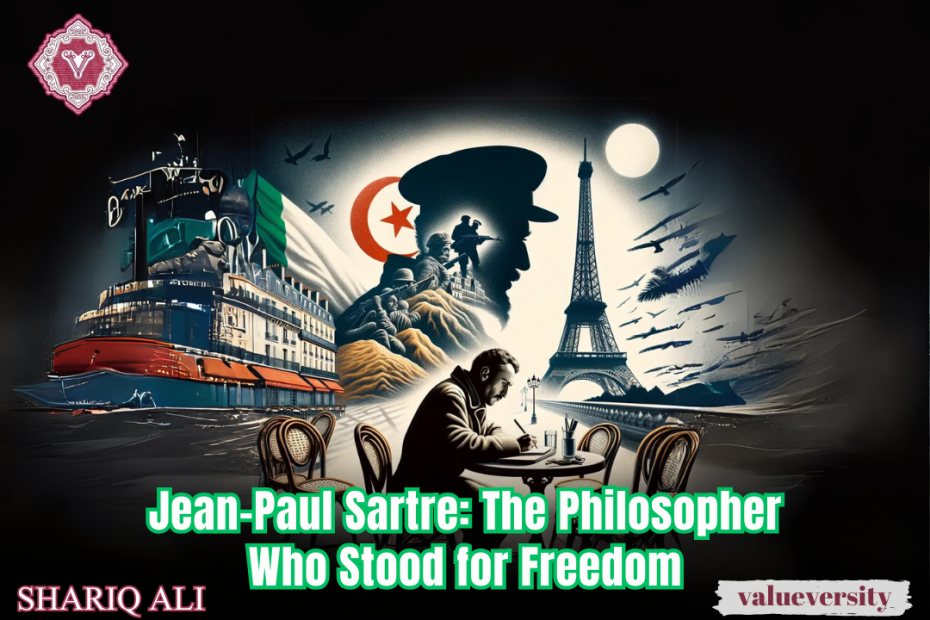Jean-Paul Sartre, the renowned French philosopher, left an indelible mark on the modern era with his profound thoughts and philosophy. His impact was especially significant during a time when the struggle for freedom and independence was unfolding in Algeria.
In a France that championed “freedom of expression,” there was a paradoxical reluctance to grant independence to Algeria. The brutal reality was that thousands of Algerian Muslims were losing their lives daily under the might of French cannons. It was in this turbulent context that Sartre made his voice heard.
Sartre boldly asserted that Algeria had every right to freedom, just as France did. He didn’t stop at mere words; he frequented a Parisian café, where he penned articles advocating for Algeria’s cause, which he then dispatched to foreign newspapers. His movement gained traction on the international stage, but at home, his stance drew vehement opposition.
Within France, he was branded a traitor, and appendices and protests emerged against him. Nevertheless, Sartre’s pen remained relentless in exposing the atrocities committed by the French army. The situation escalated to the point where a delegation from the army and parliament petitioned President De Gaulle, demanding a treason trial against Sartre.
The charge against him was “anti-patriotism in the name of ‘freedom of expression,'” considered a constitutional crime. De Gaulle found himself in a dilemma, faced with a newspaper headline that read, “One of Sartre or France Must Survive.” He responded, “Sartre is France. If I were to imprison France, where would I put him?” The delegation fell silent.
Ultimately, Algeria achieved its long-awaited liberation, and Sartre’s unwavering commitment to the cause didn’t go unnoticed. He was awarded the Nobel Prize, a prestigious honor. However, in a gesture that exemplified his principles, Sartre declined the prize.
Jean-Paul Sartre’s legacy extends beyond the pages of philosophy; it’s a testament to the power of ideas and the courage to stand up for what one believes in. His life, from 1905 to 1980, serves as a reminder that even in the face of adversity, individuals can play a pivotal role in shaping the course of history.
